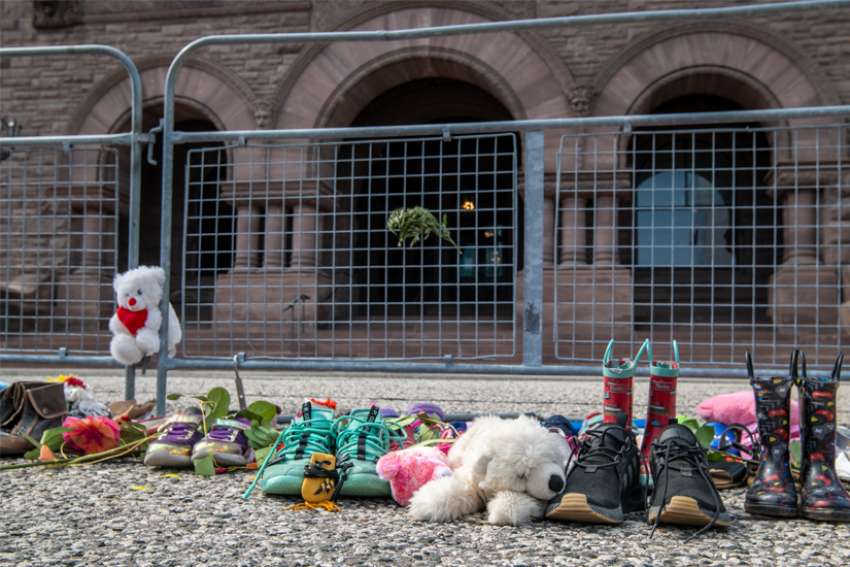The Truth and Reconcilliation Commission report calculates over 6,000 Indigenous children in residential schools died due to disease, abuse, neglect and malnutrition.
“Love thy neighbour” is a key Christian ethic. However, without a clear commitment to active reparation measures from our senior Church officials, many youths perhaps are struggling with their Catholic identity.
It’s undisputed the Catholic Church played a central role in the residential school system. These government-funded institutions stripped away the Indigenous culture in youth and separated families, some of whom never saw their children again.
When we learn about the system, it’s looked at as distant history. However, the last residential school only closed in 1996 and its lingering harmful effects reverberate today.
COVID-19 has exposed the inequities facing Indigenous people, specifically youth, on a broader scale. Many First Nations communities still face boil water advisories, deal with food scarcity and higher death rates. The rate of suicide in Indigenous teens is starkly more elevated than the national average.
In a developed country, how is it that those who lived here first are still suffering?
As Christians, and youth of today, it is necessary to educate ourselves on the depths and bounds of which colonialism and its by-products, like the residential school system, play into the institutions we uphold and the lives we lead today. We must correlate the idea of loving our neighbour to standing behind them and fighting for reparations, rights and justice. Residential schools stripped our country and Indigenous peoples of a generation of children — future parents, doctors, scholars, teachers, writers, artists, preachers and creatives — and stripped away languages and traditions native to the land where we live.
To truly bridge the gap created and support the reclamation of culture and tradition, we must amplify Indigenous voices and listen to what they say. We must also urge our elected officials to passionately fight for prosperity on First Nations’ reserves while also safeguarding their cultural customs.
As we reflect on the path to redemption and the journey to reparation and Indigenous reclamation, we near Canada Day, a day that is supposed to reflect our national independence. One idea I’ve seen is wearing orange this Canada Day as a visual reminder and acknowledgement of the Indigenous lives lost and the commitment to protecting and upholding Indigenous peoples of today.
We must go above performative activism on social media. We must educate and activate our leaders to honour Indigenous lives cruelly ended while also supporting those who live on today.
(Henricus, 18, is a Grade 12 student at Cawthra Secondary School in Mississauga, Ont.)


